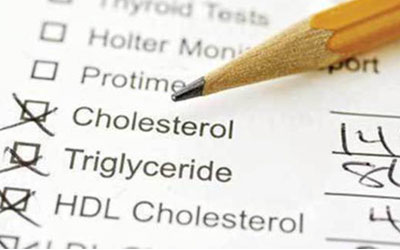Article credit : www.nst.com.my/
Health screening is a way to detect risks for early intervention, writes Kasmiah Mustapha
Prevention is better than cure. And one of the steps for prevention is medical screening. According to the NHS UK, screening is a way of finding out those at higher risk for a health problem so that early treatment can be offered or information given, to help them make informed decisions.
Columbia Asia Hospital Puchong’s chief medical officer Dr. Thiyagu Rajagobal explains the importance of medical screening.
WHY SHOULD PEOPLE GO FOR MEDICAL SCREENING?
Medical screening is the first step in prevention of diseases for doctors and patients.
It aims to identify the possible presence of a disease when there are no signs and symptoms. It is a preliminary test to look for possible diseases the person could face in the future.
Through medical screening, we can detect the risk of these diseases early. It helps if the person knows about his health so he can take the necessary steps to reduce the risks. With early detection and treatment, a person can avoid severe or life-long symptoms.
WHAT KIND OF SCREENINGs ARE NECESSARY?
There are various types of medical screening depending on age, gender, family history and risk factors.
From age 19 to 39, we recommend the basic screening which includes a chest X-ray, electrocardiogram, full blood count, lipid profile, liver function test, renal function test and urine test.
However, if these people are obese or have a family history of diseases such as diabetes or hypertension, we suggest they choose a comprehensive screening package because they have a higher risk of developing diseases before the age of 30 or 40.
Those aged 40 and above should opt for a comprehensive package that includes tumour marker, mammogram, prostate specific antigen (PSA), pap smear, upper abdomen ultrasound and breast ultrasound.
However, the tumour marker screening need not be routinely done but preferably conducted on the advice of doctors depending on the patient’s risk factors. A high reading does not mean one has cancer, while a normal reading does not exclude cancer.
PSA is the only tumour marker that is fairly specific and is usually done for those above 50 years.
WHAT ARE THE DISEASES THAT CAN BE DETECTED THROUGH MEDICAL SCREENING?
Conditions such as hypertension, diabetes, high blood cholesterol, infection, autoimmune diseases, liver and kidney disease. It is also used to detect certain types of cancer.
WHEN SHOULD SOMEONE GET A MEDICAL SCREENING?
It depends on age, gender and risk factors. But the best way is to have it done once a year. Regular screening helps to detect conditions that may develop after the last screening. As such, it is important for you to go for regular screening tests at the recommended frequency.
HOW EFFECTIVE IS MEDICAL SCREENING IN PREVENTING DISEASES?
The test is valid but the indicators may not be 100 per cent accurate. In certain cases it can be over-diagnosed or misdiagnosed.
For example, if a result is false positive it means the person does not have signs and symptoms of the disease but the indicator shows there is a disease present. Similarly, in a false negative the person has the signs and symptoms but the results are normal.
WHAT HAPPENS IF THE RESULTS ARE POSITIVE FOR A DISEASE?
It is important to note that the result is not a confirmed diagnosis just because the indicator is positive. Further tests are needed before a person can be diagnosed with the disease.
For example, if we detect a person’s blood sugar to be high, we are not going to diagnose him as diabetic. We will look into other external factors such as if he had fasted well or taken food before the blood test or had a heavy meal the night before.
We will also look at his urine test to see if glucose is present. We will then ask the patient to monitor his condition for one week, eat well and exercise and come back for further tests.
We also need to consider the signs and symptoms and family history. That is how we decide whether the patient needs to go for further treatment or be referred to a specialist to confirm the diagnosis.
IS THERE A POSSIBILITY THAT WITH FURTHER INVESTIGATIONS, THE RESULT WILL NOT BE VALID ANYMORE?
When a person goes for a medical screening, he or she must be free from infection or disease. If, for example, he or she had an infection a week prior to the screening we may still see some changes in the blood even though the person has recovered at the time of screening. But that does not mean the person has a disease.
The test is valid at the point of time it is taken but it may not be conclusive and we need to do a thorough investigation and other specific tests.
There may be changes in the results after a week or two. That is the reason we do not start medication immediately after screening but ask the patient to monitor his condition, eat right and exercise.
ARE PEOPLE AWARE OF MEDICAL SCREENING?
I think they are aware of the need to do it but they may not want to do it. The excuse is they don’t have time but they can schedule the test to suit them.
They can log on to a hospital’s website, select a test and set an appointment. The test may take up a day or even half a day. Others think they are healthy and do not need medical screening. But medical screening is done when they are no signs or symptoms. If you are already diagnosed with a disease, there is no point for medical screening.
You may have mild symptoms that could be related to some condition and a medical screening can help answer this. You may be putting on weight without reason or feeling tired.
These could be part of ageing but it could also be due to some diseases. It is better to have it ruled out rather than ignored.
WHAT THE READINGS MEAN
WHILE medical screening is not a confirmed diagnosis, the results are an indicator of a person’s risk. It is not easy to understand the results if you are not a health expert or a doctor. Below is a guideline on what the numbers mean:
BLOOD ANALYSIS

The result of medical screening is not a confirmed diagnosis.
1. Fasting Blood Glucose
Purpose: To detect diabetes
Result: Normal range for blood glucose is between 3.9 and 5.5 mmol/L. If the reading is above this level, it is a suspected diabetes case.
2. Renal function test
Purpose: To detect kidney failure
Result: Based on creatinine and urea readings.Urea range should be between 2.8 and 8.1 mmol/L and creatinine between 44 and 80 mol/L. If both readings are higher than the range, it indicates kidney failure.
3. Liver function test
Purpose : To screen for liver infection or liver disorders.
Result: The series of tests measure the levels of certain enzymes and protein in the blood. Levels that are higher or lower than normal can indicate liver problem.
4. Lipid profile
Purpose: To detect blood cholesterol level.
Result: For LDL (bad cholesterol), level should be less than 4 mmol/L. For HDL (good cholesterol), the level must be more than 1 mmol/L. Medication must be considered for high blood cholesterol level.
5. Venereal Disease Research Laboratory (VDRL)
Purpose : To detect syphilis, a sexually-transmitted disease
Result : A positive result may mean the person has syphilis. However, further tests are needed to confirm.
6. Erythrocyte Sedimentation Rate (ESR)
Purpose : To detect inflammation in the body.
Result: The normal range is 0 to 22 mm/hr for men and 0 to 29 mm/hr for women. Abnormal range may indicate inflammatory diseases such as systemic lupus erythematosus or rheumatoid arthritis.
Urine Feme
Purpose: To detect kidney failure and diabetes
Result: If there is glucose, protein and blood present in the urine, it may suggest diabetes or kidney disease.
Tumour Markers
Tumour markers, through a blood test, are useful to diagnose cancer and are done to monitor response to treatment once cancer is detected.
There is a high chance of false positive and false negative. Further tests are required to confirm diagnosis. These include:
- Carcino-embryonic Antigen (CEA): to screen for colon/rectal cancer
- Prostate Specific Antigen (PSA): to screen for prostate cancer
- CA 125: to screen for ovarian cancer
- CA 153: to screen for breast cancer
- Alpha Feto-Protein (AFP): to screen for liver and germcell cancer

“We can detect the risk of these diseases early. It helps if the person knows about his health so he can take the necessary steps to reduce the risks.” Dr. Thiyagu Rajagobal
Be in The Know – New Straits Times, 17 January 2017.
Share:
Was this article helpful?
Share:
Was this article helpful?
Health Packages
Elevate your health with tailored health packages at Columbia Asia Hospital. Take charge of your health journey today.

